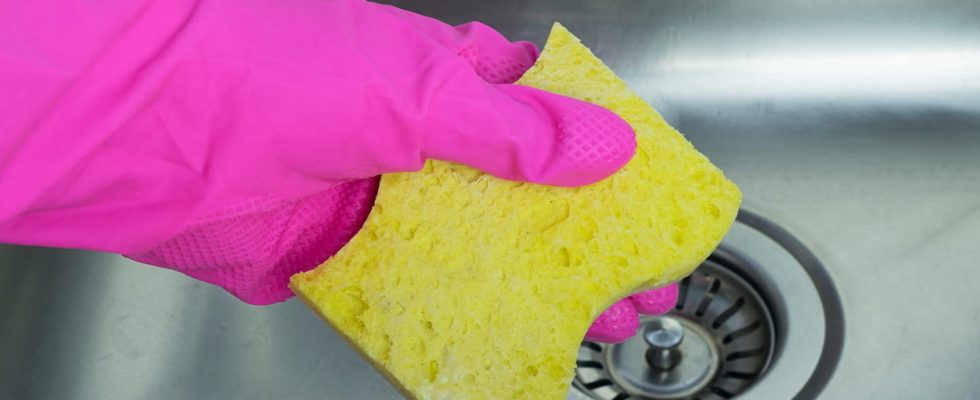Rather than throwing away your old kitchen sponges, recycle them in the garden, they can be very useful.
The gardens are regaining color. The leaves are covering the trees, the flowers are starting to bloom, the lawn is gaining height… Like many gardeners, you are preparing your garden for the sunny days and are looking for as much advice as possible to keep your plants in good health all season.
If we know that the material of the pot, watering, exposure and fertilizers are important for resplendent plants and flowers, another surprising tip is very effective. It’s about recycling old sponges. Often relegated to basic domestic use, their usefulness can be extended well beyond the kitchen or bathroom. Indeed, old sponges, often intended to be thrown away after a few uses, can be reused in an ingenious way in the garden.

For example, sponges can be used to improve the hydration of potted plants. By placing a used sponge in the bottom of the pot before adding the potting soil, you create an additional water reserve that helps maintain optimal humidity levels for plant roots. This technique is particularly useful for plants that require regular watering, for periods of high heat where evaporation is faster, or during prolonged absences?
To do this, start by disinfecting your sponges by soaking them in a cleaning product for 1 hour. Plants don’t like dirty water from your dishes. Rinse the sponges well then cut them into small pieces and place them at the bottom of your pots before adding soil and repotting your plants.
You can also place a sponge under your pots. When you water your plants, sometimes you add a little too much, which can lead to excess water standing on the surface of the soil. To remedy this, sponges can be used to gently absorb excess water. Simply place a sponge near the affected area and it will absorb excess water, helping to prevent root rot and other problems related to poor drainage.
You can also recycle your old sponges in another original way in winter, when temperatures drop and frost threatens your sensitive plants. Sponges can play a protective role. By placing pieces of sponge around the base of plants or arranging them on the soil to cover the roots, you create an insulating barrier that helps prevent frost damage. This simple method can make the difference between damaged plants and plants that survive the harsh winter.
